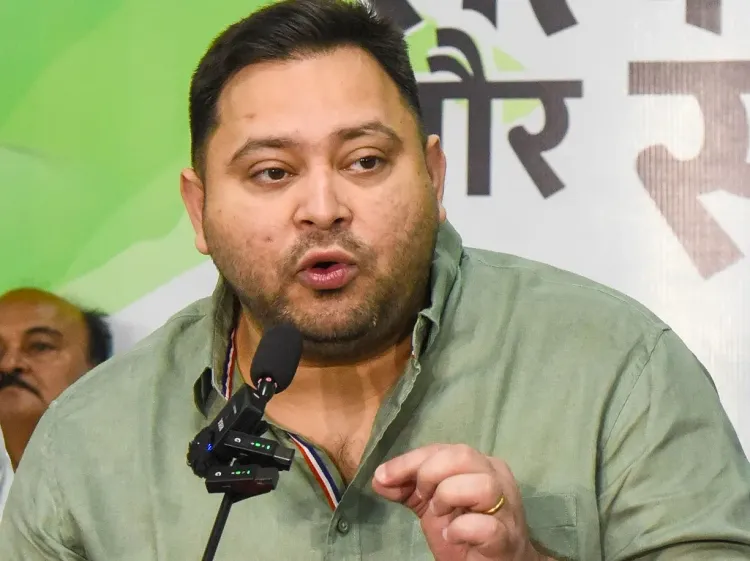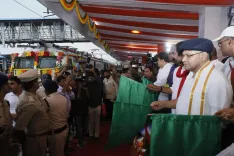What Did Tejashwi Yadav Communicate to 35 Opposition Leaders Regarding Bihar's Voter List Revision?

Synopsis
Key Takeaways
- Tejashwi Yadav has expressed serious concerns regarding the voter list revision in Bihar.
- The Special Intensive Revision is alleged to disenfranchise a significant number of voters.
- Political leaders are calling for transparency and accountability in the electoral process.
- The situation could have ramifications for the upcoming Assembly elections.
- Concerns have been raised regarding the credibility of the Election Commission of India.
Patna, July 19 (NationPress) Tejashwi Yadav, the former Deputy Chief Minister of Bihar, reached out on Saturday through letters to 35 notable opposition figures nationwide. This list includes Congress National President Mallikarjun Kharge, Lok Sabha Leader of the Opposition Rahul Gandhi, West Bengal Chief Minister Mamata Banerjee, and former Uttar Pradesh Chief Minister Akhilesh Yadav, voicing serious apprehensions over the current Special Intensive Revision (SIR) of the voter registry in Bihar.
He accused the initiative of causing widespread disenfranchisement and jeopardizing the essence of democracy.
In his correspondence, Tejashwi expressed: “I am compelled to write to you with profound concern and urgency. The ongoing farce of the Special Intensive Revision in Bihar is undermining the very fabric of democracy due to extensive disenfranchisement. This clearly reflects how the so-called 'independent institution' of the Election Commission of India (ECI) is intent on diminishing public confidence in the integrity of our electoral framework.”
Tejashwi noted that countless voters are being unilaterally removed from the electoral list without justification, branding it as an act of disempowerment and disgrace.
Referencing the ECI's press release dated July 16, 2025, he mentioned that approximately 4.5 percent of the populace has already been excluded under the pretext of “electors not found at their addresses,” alongside another 4 percent categorized as “likely deceased or permanently relocated.”
According to journalists and political analysts monitoring the situation, the estimated disenfranchisement could be between 12-15 percent, which is “unprecedented in the nation's history.”
Tejashwi raised concerns about the timing of the SIR, suggesting it raised suspicion and mentioned that the Supreme Court had also expressed concerns regarding the matter. He accused the Election Commission of executing the revision in a “chaotic and arbitrary manner,” lacking transparency and altering rules without notice.
“They are targeting anyone and everyone who is advocating for transparency and accountability,” he asserted.
Referencing past issues, Tejashwi recalled the recent experiences from the Maharashtra Assembly Elections and cautioned that if this situation is not challenged, similar strategies could spread to other states.
He concluded: “The Constitution mandates that we safeguard the republic. We must not falter at this critical moment.”
The Special Intensive Revision of voter lists in Bihar has emerged as a significant political issue ahead of the Assembly elections. The RJD and its Grand Alliance allies have accused the ruling party of attempting to manipulate electoral rolls, while the Election Commission defends the process as part of its standard and transparent voter list management.






